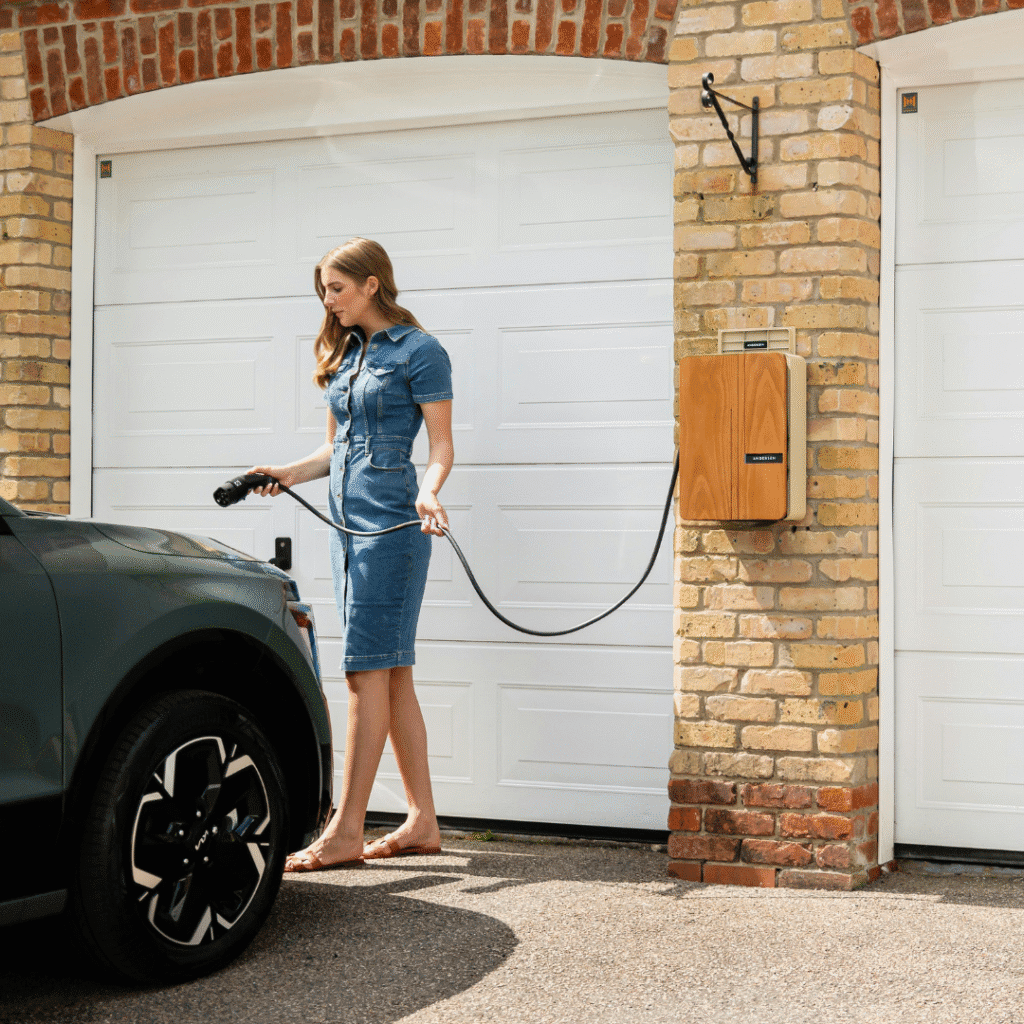
As more homeowners in Colorado embrace the shift toward electric vehicles (EVs)-from the Hyundai Ioniq 5 and Tesla Model 3 to the Chevrolet Bolt and Ford Mustang Mach-E-many are discovering the need to upgrade their home’s electrical panel to support an in-home charging station. Whether you’re charging a pickup truck, luxury car, or a daily-driving electric SUV, it’s important to evaluate whether your current electrical system is capable of handling the increased electrical load.
A modern electrical panel isn’t just about keeping the lights on; it plays a crucial role in supporting home improvement upgrades like EV chargers, heat pumps, air conditioning, solar panels, and energy management systems. If your panel isn’t ready, you risk tripping circuit breakers, causing a short circuit, or facing costly damage.
Step 1: Check Your Panel’s Amperage Rating
Your breaker box or distribution board typically has a label indicating its ampere (amp) capacity-usually 100, 150, or 200 amps. The amp rating refers to the maximum electric current your home can handle. For a dedicated Level 2 EV charger, a 200-amp panel is usually recommended, especially if you also run high-powered appliances like a furnace, clothes dryer, electric oven, or air conditioning system.
Homes with 100-amp service may be able to accommodate a Level 1 charger, but they are likely underpowered for most battery electric vehicles, especially as energy consumption increases with multiple vehicles or growing electrification needs.
Step 2: Evaluate Your Current and Future Electrical Load
Modern homes rely on more electric power than ever before. Between your electronics, lighting, HVAC system, and appliances like refrigerators and stoves, your panel may already be approaching its maximum watt load.
Ask yourself:
-
Do you plan to add more electric vehicles in the future?
-
Are you considering a basement renovation or kitchen upgrade?
-
Will you install solar power, a backup power station, or smart energy management tools?
If so, your current panel might not cut it. Overloading your panel can lead to arc faults, power surges, or electrical faults that may void your home insurance policy and create major safety risks.
Step 3: Understand Your Charger Options
Level 1 Charger
-
120V standard outlet
-
Adds 3-5 miles of range per hour
-
Best for overnight charging with limited electrical capacity
Level 2 Charger
-
240V dedicated circuit
-
Adds 25-50 miles of range per hour
-
Requires more amps and usually a separate breaker on your panel
-
Compatible with most EVs, including BMW i3, Lucid Air, and Volkswagen ID.4
Level 2 chargers often use connectors like SAE J1772 and may require surge protector installation, ground fault protection, or a dedicated electrical conduit to meet the National Electrical Code.
Step 4: Consider Panel Upgrade Options
If your current panel can’t handle the additional electrical power distribution demands, you may need an electrical panel upgrade or full panel replacement. This involves replacing your existing system with one that offers greater capacity and adheres to modern safety standards.
Key benefits of a panel upgrade include:
-
Support for high-demand appliances (e.g., electric furnaces, heat pumps, solar panels)
-
Enhanced surge protection
-
Reduced risk of electrical issues, including smoke, corrosion, and rust
-
Improved compliance with the electrical code
-
Increased property value and eligibility for tax credits (including those from the Inflation Reduction Act)
Step 5: Ask About Rebates and Incentives
In some areas, public utilities and government programs offer tax rebates and financial incentives for electrical panel installations, EV charger installations, and solar energy integrations. These can significantly offset the cost of upgrading your panel and installing a Tesla Wall Box, ChargePoint, or Wallbox Pulsar Plus charger.
Why Professional Installation Matters
Installing an EV charger involves more than simply plugging into an outlet. It requires:
-
Evaluating your electrical wiring, breakers, and busbars
-
Calculating total voltage and amps required
-
Ensuring grounding, switch connections, and panel access meet accessibility requirements
-
Obtaining proper permits and undergoing inspections
That’s why working with a licensed electrician or master electrician is essential. Only a qualified electrical contractor can ensure that your home electrical system is safe, compliant, and efficient.
Get Expert Help from Positively Charged Electric
At Positively Charged Electric, we specialize in residential electrical upgrades, including EV charger installations and electrical panel upgrades. Whether you’re charging a Nissan Leaf, Chevrolet Silverado EV, or BMW i4, we provide:
-
Free estimates
-
Full electrical panel inspection and load calculation
-
Professional installation of modern electrical components
-
Help navigating tax credits and home insurance requirements
-
Complete support from consultation to final inspection
Call Positively Charged Electric today at 720-327-4525 to find out if your home is ready for an EV charger and take the next step toward clean, efficient transport powered by renewable energy. We proudly serve Denver, Centennial, and the greater Front Range area-bringing you safer, smarter, and more sustainable electrical services with a focus on quality, safety, and customer service.
